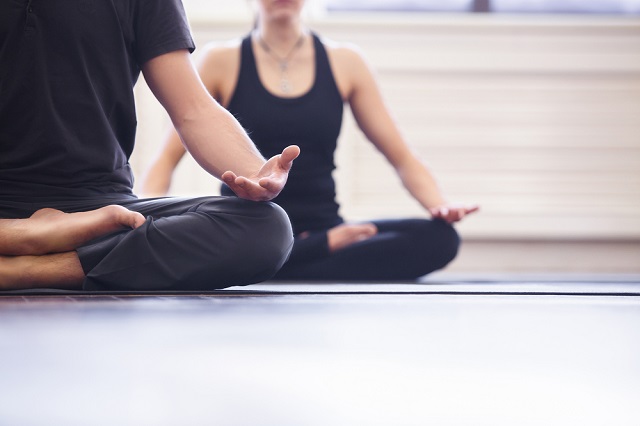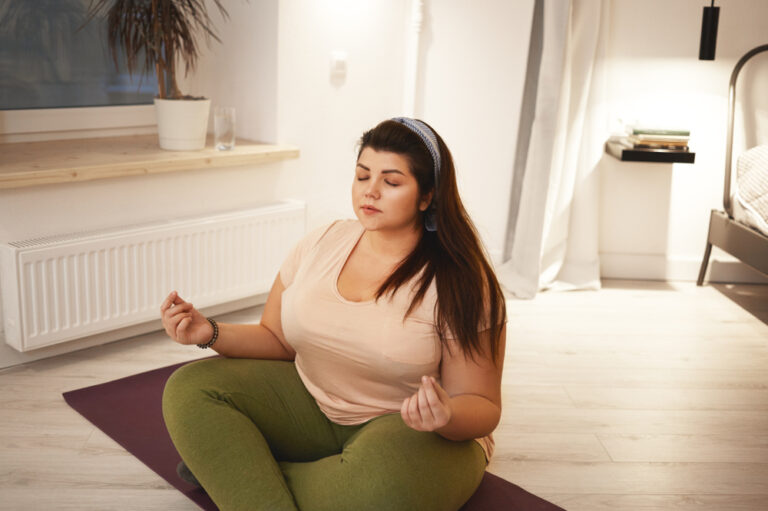How Long You Should Meditate Each Day: The Science-backed Answer
Meditation has gained significant popularity as a practice that promotes mental and emotional well-being. One common question is how long you should meditate each day to reap the maximum benefits. However, In this article, we will explore the science behind meditation duration and provide insights into finding the optimal meditation time for you.
The Benefits of Meditation
Numerous studies have highlighted the wide-ranging benefits of meditation. From reducing stress and anxiety to improving focus and cognitive function, meditation has been shown to impact both mental and physical health positively. By incorporating meditation into your daily routine, you can experience enhanced well-being and a greater inner calm.
Exploring the Science Behind Meditation Duration
Scientific research has delved into the relationship between meditation duration and its effects on the brain and body. Studies have shown that even short periods of meditation can lead to changes in brain structure and neural activity. Longer meditation sessions have been associated with increased gray matter density in brain regions related to attention and emotional regulation. These findings suggest that the duration of meditation practice can influence the extent of its benefits.
Short Periods of Meditation and Brain Changes: Scientific research has revealed that even short periods of meditation can have a profound impact on the brain. Studies have shown that as little as 10 minutes of daily meditation can lead to noticeable changes in brain structure and function. This highlights the potential benefits of incorporating brief meditation sessions into your daily routine.
Longer Meditation Sessions and Gray Matter Density: Longer meditation sessions have been associated with more significant changes in the brain. Research has found that individuals who engage in regular, longer meditation sessions tend to have increased gray matter density in specific brain regions. These regions are involved in attention, emotional regulation, and self-awareness. The growth of gray matter suggests that longer meditation durations have a more profound impact on these cognitive processes.
Attention and Focus Enhancement: Meditation duration has been linked to improvements in concentration and focus. Studies have shown that individuals who engage in longer meditation sessions tend to exhibit enhanced attentional control and the ability to sustain focus for extended periods. This suggests that dedicating more time to meditation can strengthen the neural networks responsible for attentional processes.
Emotional Regulation and Well-being: The duration of meditation practice has also been found to influence emotional regulation and overall well-being. Longer meditation sessions have been associated with more significant improvements in emotional resilience, reduced reactivity to stressors, and increased feelings of well-being. These findings suggest that extended meditation durations provide more opportunities for individuals to cultivate emotional balance and experience positive emotions.
Neuroplasticity and Meditation Duration: The relationship between meditation duration and brain changes can be attributed to neuroplasticity. Neuroplasticity is the brain’s capacity to restructure itself and establish fresh neural connections continuously throughout one’s life. Longer meditation sessions provide more time for the brain to engage in neuroplastic changes, leading to structural and functional adaptations that support improved cognitive and emotional functioning.
Scientific research has demonstrated that meditation duration plays a role in the extent of its benefits. Even short periods of meditation can lead to noticeable changes in brain structure and neural activity. However, longer meditation sessions have been associated with increased gray matter density in brain regions related to attention and emotional regulation.
These findings highlight the potential for more profound improvements in attention, emotional well-being, and overall cognitive functioning with extended meditation durations. The concept of neuroplasticity further supports the idea that longer meditation sessions provide more opportunities for the brain to reorganize and adapt.
Ultimately, finding a meditation duration that suits your needs and preferences can help you harness the transformative power of meditation for your mental and emotional well-being,

Factors to Consider When Determining How Long to Meditate
When determining the ideal meditation duration for yourself, it is essential to consider various factors. Your experience level, personal goals, and available time all play a role in finding the right balance. It is crucial to listen to your body and mind, as well as to be mindful of your own needs and preferences.
Experience Level and Skill Development: Your experience level in meditation is an essential factor to consider when determining the ideal meditation duration. Beginners may find it more challenging to sustain longer sessions, while experienced practitioners may be able to engage in more extended periods of meditation. Gradually increasing the duration as you progress in your practice allows for skill development and a deeper exploration of meditation techniques.
Personal Goals and Intentions: Your personal goals and intentions for meditation should guide the duration of your practice. If you are seeking stress reduction and relaxation, shorter sessions may be sufficient. However, if you aim to cultivate deeper mindfulness or explore spiritual aspects of meditation, longer durations may be more appropriate. Clarifying your goals can help you align your meditation duration with your desired outcomes.
Available Time and Scheduling Constraints: Consider the practical aspect of open time when determining your meditation duration. Assess your daily schedule and identify windows of time dedicated to meditation. If you have limited time, shorter sessions can still be beneficial. It’s better to have consistent, shorter sessions than to skip meditation altogether due to time constraints.
Listening to Your Body and Mind: Pay attention to the signals from your body and mind during meditation. If you become restless or distracted, the duration may be too long for your current state. On the other hand, if you feel a sense of calm and focus, you may be ready to extend your meditation duration. Trust your intuition and adjust the length of your sessions based on how you feel in the present moment.
Needs and Preferences: Everyone has unique needs and preferences regarding meditation. Some may find that shorter, more frequent sessions align better with their lifestyle and attention span. Others may prefer longer, immersive sessions that allow a deeper exploration of their inner experiences. Reflect on what resonates with you and is sustainable in the long run.
By considering these factors, you can find the right balance and determine the ideal meditation duration for yourself. Remember that meditation is a personal practice, and what works for others may not necessarily work for you. It’s essential to honor your needs, preferences, and limitations as you embark on your meditation journey.
Finding the Right Meditation Duration for You
Experimentation is vital when finding the optimal meditation duration. Begin with brief sessions and progressively extend the period as you grow more efficiently. Pay attention to how your mind and body respond to different durations. Some individuals may find that shorter, more frequent sessions work best for them, while others prefer longer, more immersive experiences.

Tips for Incorporating Meditation into Your Daily Life
To establish a consistent meditation practice, it is helpful to incorporate it into your daily routine.
Designate a Quiet and Comfortable Space: Find a dedicated space in your home where you can practice meditation without distractions. It could be a corner of a room, a cozy nook, or even a specific cushion or mat. Creating a designated space helps signal to your mind and body that it’s time for meditation, enhancing focus and relaxation.
Set Aside Dedicated Time: Schedule a specific time for your meditation practice each day. Whether in the morning, during a lunch break, or in the evening, having a designated time helps establish consistency. Treat this time as non-negotiable and prioritize it as an essential part of your daily routine.
Create a Ritual: Develop a ritual that marks the beginning and end of your meditation session. This could include lighting a candle, burning incense, or playing soft music. Engaging in a consistent ritual helps create a sense of sacredness and signals to your mind that it’s time to enter a meditative state.
Start with Short Sessions and Gradually Increase Duration: If you’re new to meditation or struggle with finding time, start with shorter sessions, such as 5 or 10 minutes. As you become more comfortable and establish a routine, gradually expand the duration. This gradual progression allows you to build endurance and maintain consistency without overwhelming yourself.
Use Guided Meditations or Apps: If you find it challenging to meditate independently, consider using guided meditations or meditation apps. These materials offer detailed guidance to assist you in maintaining concentration during your practice. Try out various styles and tones to discover what aligns with your preferences.
Integrate Meditation into Daily Activities: Meditation isn’t restricted to quiet seated moments. You can infuse mindfulness into your everyday tasks, whether mindful walking, mindful eating, or even while performing household chores. This allows you to infuse mindfulness into your entire day and make meditation a seamless part of your routine.
Find an Accountability Partner or Join a Group: Connecting with others interested in meditation can provide support and accountability. Consider finding an accountability partner or joining a meditation group or class. Sharing your experiences, challenges, and progress can help you stay motivated and committed to your practice.
Be Flexible and Adapt to Changes: Life can be unpredictable, and there may be days when your meditation routine gets disrupted. Instead of getting discouraged, be flexible and adapt to changes. If you miss a session, don’t dwell on it. Resume your practice the next day and continue with your commitment to consistency.
By integrating these suggestions into your everyday schedule, you can establish a steady meditation routine. Remember, consistency is key, so aim to meditate simultaneously each day and create a dedicated space that supports your practice. With time and commitment, meditation will become a natural and nourishing part of your daily life.
The Importance of Consistency in Meditation Practice
Consistency is vital in reaping the long-term benefits of meditation. Regular practice allows you to deepen your focus, cultivate mindfulness, and experience the transformative effects of meditation. By committing to a consistent routine, you create a foundation for growth and self-discovery.
Finding the Optimal Meditation Time for You
Consider experimenting with different times of the day to find when you feel most receptive to meditation. Some individuals find that starting their day with meditation sets a positive tone, while others prefer midday or evening sessions to unwind and relax. Discovering the optimal meditation time for you can enhance the effectiveness of your practice.
The Role of Consistency in Meditation Practice
Maintaining a consistent meditation practice is essential for long-term growth and progress. Even if you can only spare a few minutes each day, regularity is more important than duration. Over time, the cumulative effects of consistent practice will become evident, leading to a more profound sense of calm and self-awareness.
Adjusting Your Meditation Time as Needed
As your meditation practice evolves, it is natural to adjust your meditation time. Life circumstances, personal goals, and changing schedules may require flexibility. Be open to adapting your practice to suit your current needs while staying committed to meditation.
Conclusion: How Long You Should Meditate Each Day?
In conclusion, the optimal meditation duration varies for each individual. By exploring the science behind meditation duration, considering personal factors, and experimenting with different durations, you can find the sweet spot that works best for you.
Remember, consistency and self-awareness are key. Embrace the transformative power of meditation and embark on a journey of self-discovery and inner peace.







